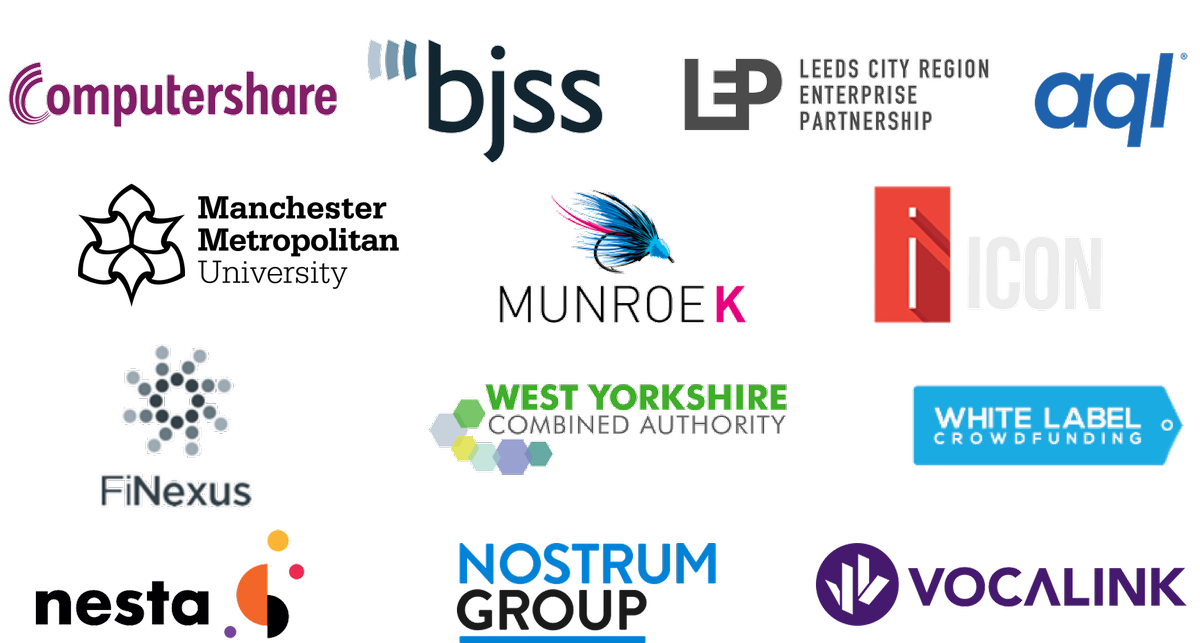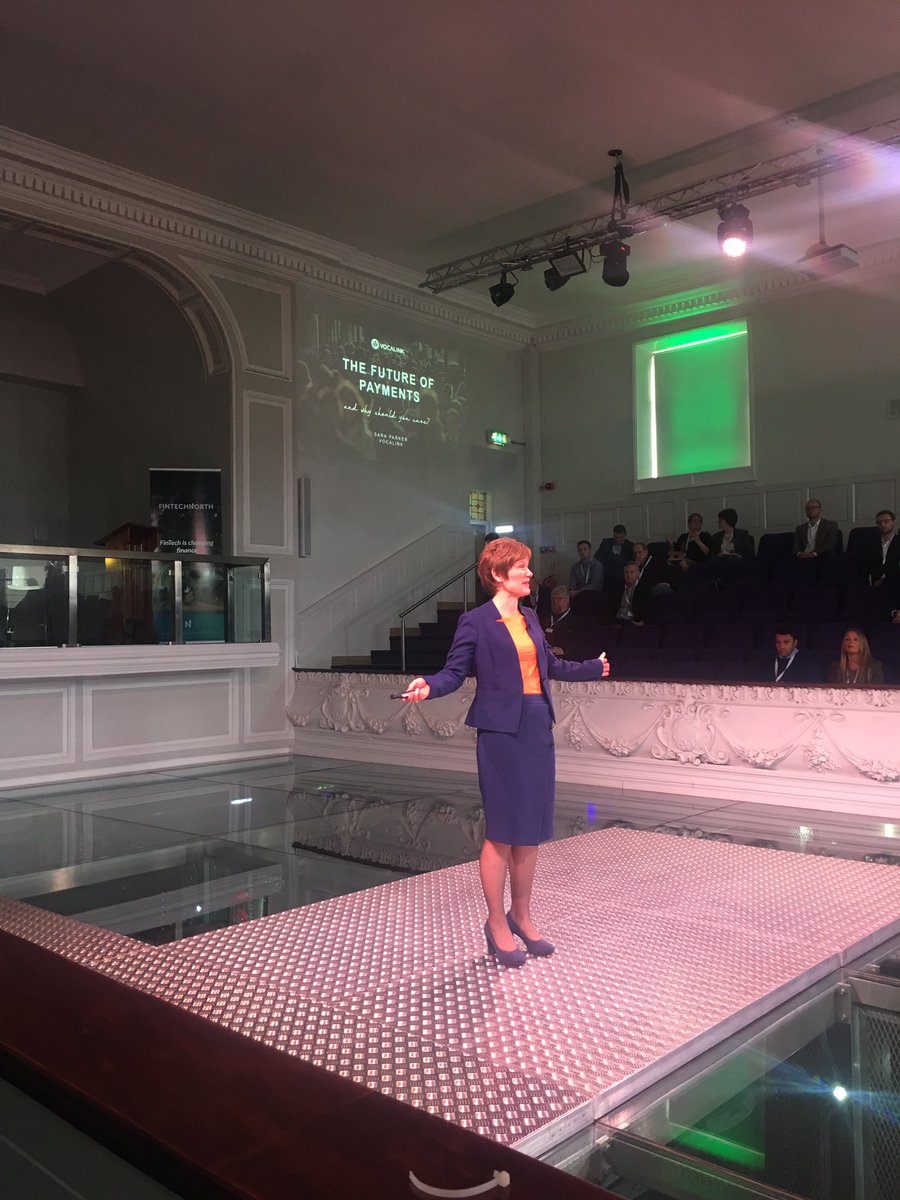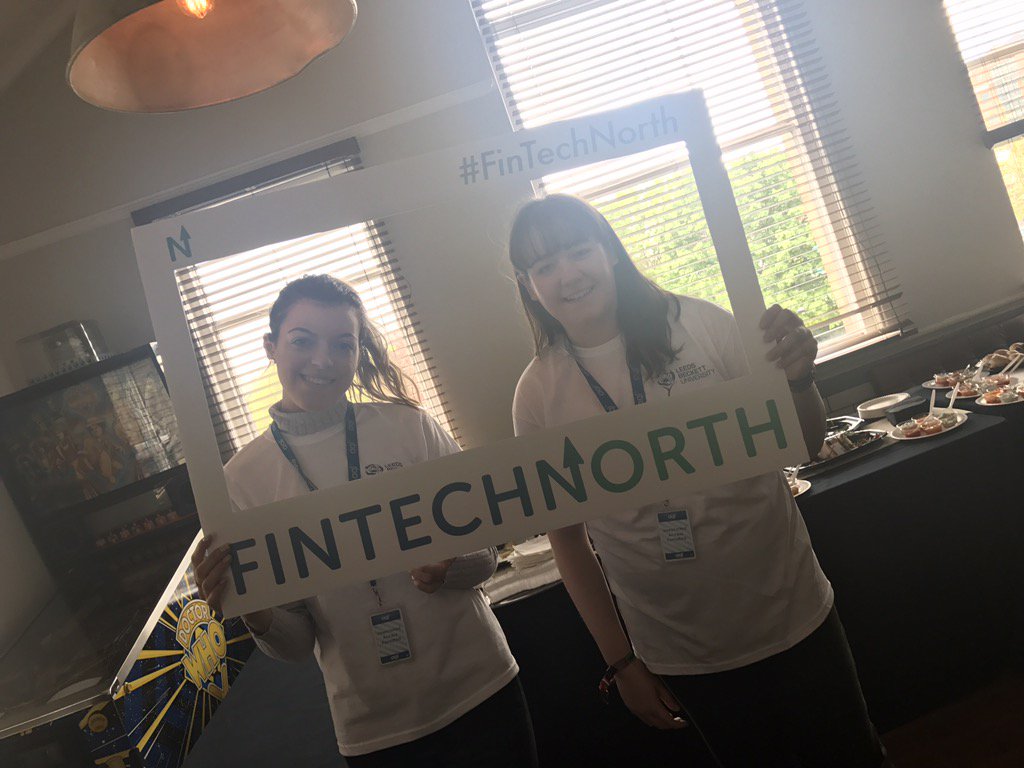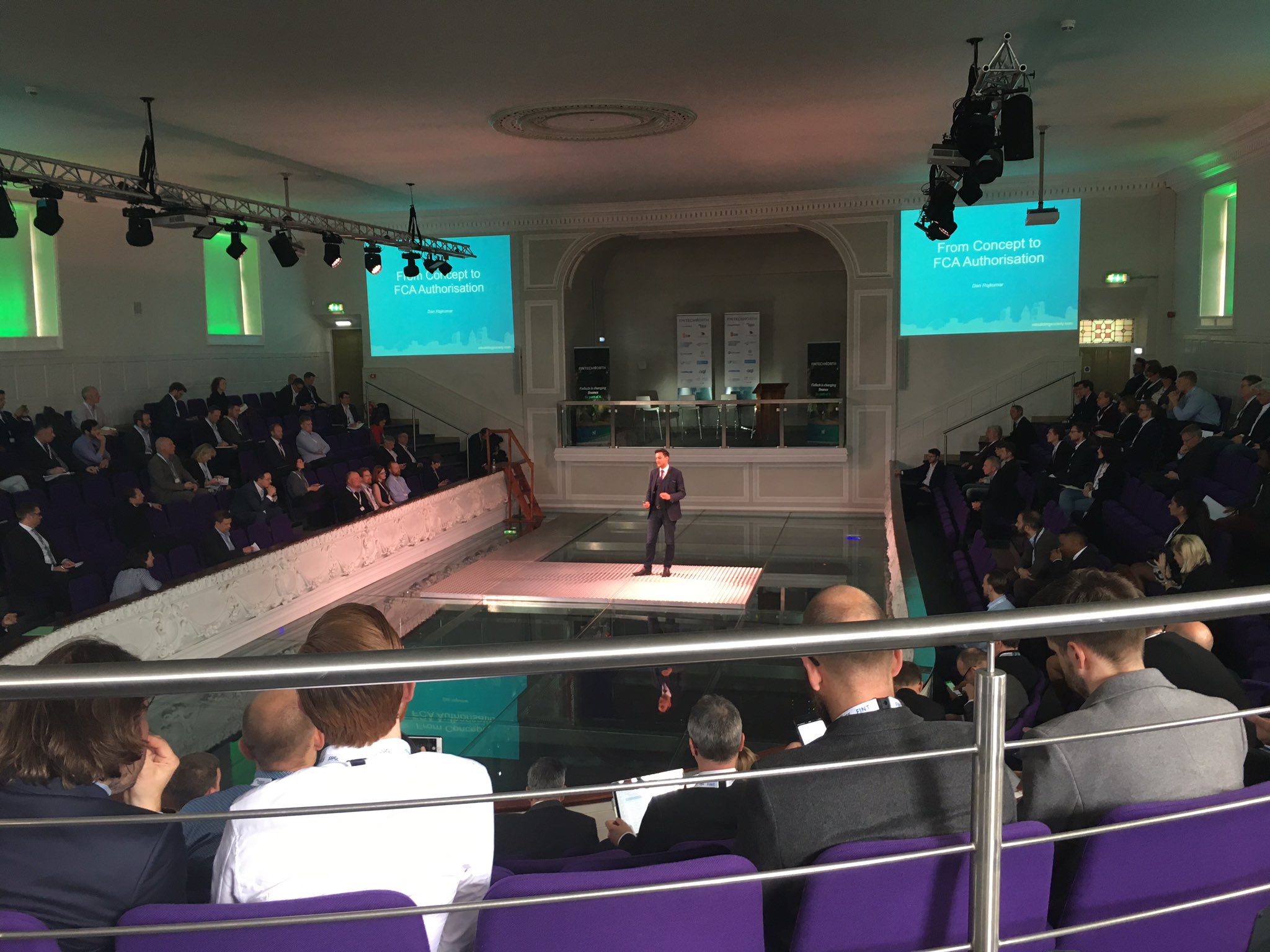FinTech North is a one day event in Leeds which focuses on technology innovation in the financial services industry – organised by Whitecap Consulting, White Label Crowdfunding and FiNexus. This year’s event took place at aql, Leeds on the 26th April 2017, as part of Leeds Digital Festival.
Nostrum Group, one of the sponsors of FinTech North, produced this blog and we’re delighted to share it.
FinTech North 2017 covered a diverse range of topics all centered on the progression of FinTech in the northern region.
Dr Chris Sier chaired the event, and opened the day’s proceedings by reflecting on his role as FinTech Envoy for the North of England, and discussing the evolution that the FinTech industry has experienced in the last 20 years. He highlighted that where ‘FinTech’ once referred to traditional financial technologies, the word had now become synonymous with innovation, revolutionising the customer experience and redefining the business model for the digital age. Stating that FinTech productivity is growing year-on-year and that if you’re a start-up in this area your future is looking bright, he quoted Philip Hammond, Chancellor of the Exchequer, from April 2017;
“The FinTech sector is one of our fastest growing sectors in the UK, adding more than £6.6 billion into the UK’s economy and attracting more than £500 million of investment.”
According to Chris, the next sectors ripe for FinTech disruption are mortgages, pensions and savings with the market opportunity estimated to be as large as £200-£300billion per annum in the UK alone.
So why Leeds? This was a reoccurring topic throughout the day, but why not Leeds was the conclusion; boasting over 36,000 graduates per year, from three prestigious Universities and has the largest retail banking cluster outside of London, Leeds is well positioned to take advantage of £20 billion UK FinTech revenue generated in 2014. Not to mention the lower operation costs, growing FinTech ecosystem and access to established talented digital workforce.
Regulatory Views
Why does the FCA care about innovation in FinTech? The FCA recognises that fundamentally where there is innovation, there is risk and they want to look at how to provide the best outcome for consumers, whilst also nurturing an environment where that can happen, most importantly promoting competition that is in the interests of consumers.
With their Project Innovate Platform, the FCA aimed to create an opportunity for qualifying innovations to be trialled in an environment where any customer detriment could be controlled. Since its inception, it has assisted 358 firms from 720 requests for support including 95 informal steers. Similarly the ‘Regulatory Sandbox’, now in its second round of applications, has accepted 31 submissions for testing out of 77, nearly double the number accepted in the primary round 6 months ago. That means more innovative firms, trialling more innovative propositions to bring to the market. What’s more, where applications were once London focused, they are now coming from around the UK, showing a clear growth in confidence from the regions.
At the FinTech North event the FCA were offing a drop-in session for anyone interested in advice, further promoting their work to make the regulator more regionally accessible. Christopher Woolard, Executive Director of Strategy and Competition for the FCA, highlighted the areas of FinTech development mapped out by the regulator where value can be added to emerging hubs – namely in the Edinburgh-Glasgow corridor and the Leeds-Manchester area. The goal is to reach a point where, regardless of where the innovation has come from, it still has an equal opportunity for success.
“We’re especially interested in areas where ‘Fin’ and ‘Tech’ collide, that is, areas that have both strong financial centres and a technology presence, often backed by strong relationships with local universities.” said Christopher Woolard.
The full copy of Chris Woolard’s presentation can be viewed on the FCA website.
FinTech Landscape
During the panel session it was highlighted that the noise and hype of London can often lead to a loss of focus, with FinTech used as a buzz word for promotion rather than innovation. Laura Bailey, CEO of Zerado pointed out the Northern markets are already redefining the culture of FinTech with a more efficient ecosystem. A key draw for start-ups to the region is that they can be a part of this and chose to take advantage of better cash flow generation, recruitment and talent acquisition. This is particularly relevant when attracting the next generation of the workforce, who want to work for more agile, innovative companies. Before the financial crash, 1 in 3 graduates went into finance and banking. That’s now changing and graduates are chasing companies that share their passions, particularly around technology.
Nostrum Group CEO, Richard Carter highlighted the younger generation are known for breaking the cycle of those who came before them, and that there is an ‘on demand’ generation of workforce raised on Netflix and Uber, waiting in the wings, who expect opportunity and services on their doorstep.
Karoli Hindriks, Founder of Jobbatical, discussed how the recipe for a successful career has changed. No longer is it primarily about good education and a good university guaranteeing good prospects. Having travelled the world exploring how skills and resources are utilised in the global FinTech economy, she explained that there is a huge opportunity to diversity areas where talent pools have become saturated, that there is not so much a shortage of job opportunities, just a mismatch of locations and candidates. Importantly, Karolina also discussed the focus of Culture-Fit V Culture-Add, and how building a more creative mobile ecosystem internally, can get the most value externally.
Karoli suggests thinking of cities and regions as services, to address the user experience and understand the talent that’s available to you to nurture, by investing in placements and internships and working directly with institutions. A number of universities in the UK have started to introduce studies in FinTech and in the future we could see degree titles in just that.
There is a huge amount of research coming from the Northern sector which further justifies the value of increased investment. In 2016 Dr Mark Davis, Associate Professor of Sociology at the University of Leeds, co-wrote a report using qualitative evaluation of the FinTech sector, interviewing companies at the frontline of FinTech to better understand their motivations and examine the sector’s role in democratising finance and building economic resilience. His discussion at FinTech North demonstrated his findings on the UK’s rapidly growing ‘AltFin’ movement, which is becoming a major player in the financial sector, and was valued at £3.2 billion in 2015 – almost five times the 2013 figure.
From this report, his predictions on the Future of FinTech were three-fold; Status Quo Innovation, where FinTech pushed forward with how it currently operates but ultimately never really achieves evolution in the finance industry, with the power and influence remaining in the private sector. The Disruptive Innovation, where the relationship between the customer and business changes to reconnect people more closely to the assets they invest in, with greater transparency and control in the existing financial system, ultimately leading to individual value. And finally there’s Transformative Innovation; where the future of FinTech leads to radical change in the relationship between the financial system and the wider society, redefining the purpose of finance to shift power relationships and meet the needs of everyone in society for great public value.
This report, Financial Innovation Today: Towards Economic Resilience, can be found here.
Open banking
With the introduction of Open Banking and PSD2 set to allow greater freedom of financial movement for consumers, we are expect to see more innovation in API development. In the UK, 91% of consumer current accounts are split between just six banks, and a straw poll of the room conducted by David Beardmore, of the Open Data Institute, confirmed that many of the FinTech delegates, have had the same current account for 10, 20 + years. Historically there has been a tendency for banks to assume ownership of consumer’s data, what we look for in the future is consumers taking back control. FinTechs that take the lead in the is Open Banking space will see a huge benefit, taking advantage of the opportunities offered up by Big Data to better service the consumer at scale.
Consumers have been educated by banks for years to protect their data and are now being asked to be more open with this, in a more accessible system the question is; how do we protect against fraudulent activity? This is one of the challenges that FinTech will need to address. You can read Nostrum’s thoughts on Open Banking and PSD2 here.
Stuart Sherman, CEO of IMC Business Architecture and AI guru believes the communication barriers between financial institutions and their consumers could be solved with Behavioural AI being key to a more personal banking experience. Stuart believes the opportunity is ripe for FinTech development to leverage the growing consumer demand for a more functional financial service, accessible by Open Banking. The ability to use Neuro Linguistic Pattern Matching in financial decisions such as lending, could be invaluable to determine high risk candidates. As a growing number of consumers develop digital only relationships with the financial providers, open banking coupled with AI provides an opportunity to reimagine the user interface to be one, singular experience, rather than logging into multiple platforms to service their finances.
What FinTech North has inspired is the call to action for more of this type of event, championing the opportunities in the North and beyond, offering a more frequent platform for networking and collaboration, to promote business outside of the capital.
What’s interesting about FinTech North is that it doesn’t fit with the normal model of this genre of conference, what the team have created is a more diverse, thought provoking agenda that is refreshingly different from the norm. Having presented at the inaugural FinTech North in 2016 and then again this year, there is a noticeable maturity to the event, whilst still anchoring their reputation with big speakers like the FCA. They’re not afraid to dig deeper and embrace speakers and topics that inspire discussion, making for a very interesting thought out event. If you didn’t get the opportunity to attend this year, be sure to add it to your calendar in 2018, as we’re very much looking forward to see what’s in store.
FinTech North 2017 Sponsors & Partners






